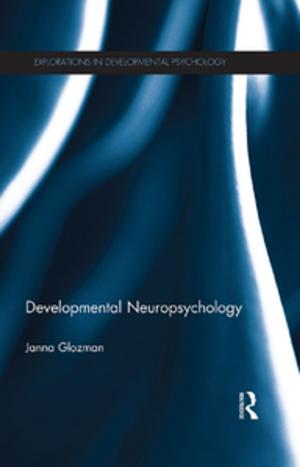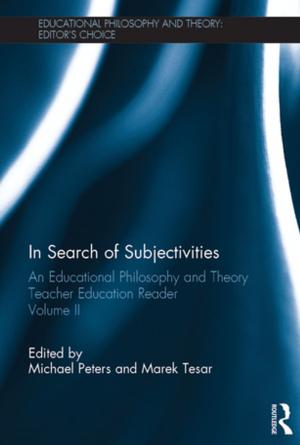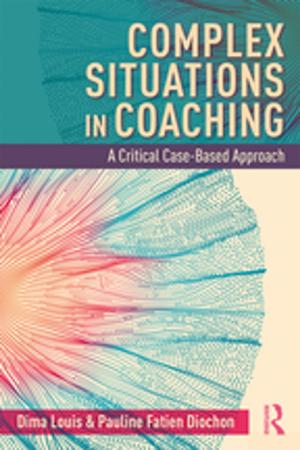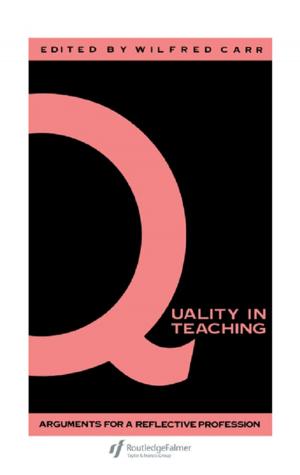The Prisonhouse of Psychoanalysis
Nonfiction, Health & Well Being, Psychology, Applied Psychology, Psychotherapy, Interpersonal Relations| Author: | Arnold I. Goldberg | ISBN: | 9781134883332 |
| Publisher: | Taylor and Francis | Publication: | May 13, 2013 |
| Imprint: | Routledge | Language: | English |
| Author: | Arnold I. Goldberg |
| ISBN: | 9781134883332 |
| Publisher: | Taylor and Francis |
| Publication: | May 13, 2013 |
| Imprint: | Routledge |
| Language: | English |
In The Prisonhouse of Psychoanalysis, Arnold Goldberg trains a searching, critical eye on his own profession. His subject matter is the system of interlocking constraints - theoretical, institutional, educational - that imprisons psychoanalysis and the psychoanalyst. His agenda is to sketch the shape analysis might take in the absence of these constraints. What emerges from these twin endeavors is a penetrating critique of psychoanalysis from the inside - from the vantage point of a senior analyst who has labored for many years within the prisonhouse that he now criticizes.
In proffering an alternative vision of psychoanalysis, Goldberg ventures into recent literature in epistemology, philosophy of science, cognitive psychology, and the neurosciences, so that one valuable byproduct of his work is a brilliant application of insights culled from these fields to the question of what analysis is, and what it may yet become. His examination of "psychoanalysis without foundations" challenges the ability of infancy research data and neurological findings, respectively, to provide an empirical rock bottom from which psychoanalytic theory-building can proceed. His chapter on "psychoanalysis without representations" reviews the analytic literature on the latter concept, only to show how recent theories of brain processing, including connectionism, provides a basis for understanding mental phenomena without any intermediary representations. Finally, his vision of "psychoanalysis without a subject" assesses recent findings about the nature of memory, insights of contemporary philosophy, and Kohut's notion of the selfobject as converging tributaries that make possible an analysis that dispenses with the conventional dichotomy of subject and object.
In The Prisonhouse of Psychoanalysis, Arnold Goldberg trains a searching, critical eye on his own profession. His subject matter is the system of interlocking constraints - theoretical, institutional, educational - that imprisons psychoanalysis and the psychoanalyst. His agenda is to sketch the shape analysis might take in the absence of these constraints. What emerges from these twin endeavors is a penetrating critique of psychoanalysis from the inside - from the vantage point of a senior analyst who has labored for many years within the prisonhouse that he now criticizes.
In proffering an alternative vision of psychoanalysis, Goldberg ventures into recent literature in epistemology, philosophy of science, cognitive psychology, and the neurosciences, so that one valuable byproduct of his work is a brilliant application of insights culled from these fields to the question of what analysis is, and what it may yet become. His examination of "psychoanalysis without foundations" challenges the ability of infancy research data and neurological findings, respectively, to provide an empirical rock bottom from which psychoanalytic theory-building can proceed. His chapter on "psychoanalysis without representations" reviews the analytic literature on the latter concept, only to show how recent theories of brain processing, including connectionism, provides a basis for understanding mental phenomena without any intermediary representations. Finally, his vision of "psychoanalysis without a subject" assesses recent findings about the nature of memory, insights of contemporary philosophy, and Kohut's notion of the selfobject as converging tributaries that make possible an analysis that dispenses with the conventional dichotomy of subject and object.















